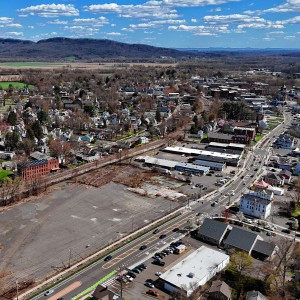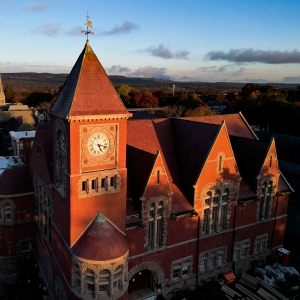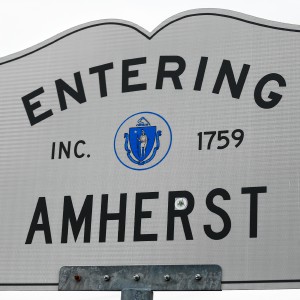Massachusetts lawmakers hear pleas for location shield law
| Published: 06-29-2023 1:03 PM |
BOSTON — Anyone with a cellphone in their pocket can likely be tracked — to the grocery store or the gym, to work or school, to religious services or health care appointments. With prolific data available on Bay Staters’ day-to-day lives, a bill seeks to ban tech companies from selling the information they collect on where a person is and has been.
Senate Majority Leader Cynthia Stone Creem and Rep. Kate Lipper-Garabedian say their legislation (H 357 / S 148) will help protect LGBTQ+ people, domestic violence survivors, those seeking reproductive health care, religious minorities and others who face higher levels of discrimination and violence.
“In 2015 a Massachusetts data broker secretly tracked women in other states visiting abortion clinics, and sold real-time ad access to those devices to anti-abortion groups. They then ran manipulative targeted ads to women literally while they were sitting in clinic waiting rooms,” said Justin Sherman, a senior fellow at Duke University Sanford School of Public Policy leading its data brokerage research project.
Sherman was one of dozens who testified before the Joint Committee on Consumer Protection and Professional Licensure at a hearing for the bill on June 26.
Apps downloaded onto cellphones are constantly collecting location data on their users, often for purposes related to what the app is intended to do. Users need to grant apps access to their location in order to see up-to-date weather in their town or city, navigate using map apps, or access certain features on social media.
But companies can sell this data. Often information on where people live, work, or otherwise spend time is sent to advertisers and “data brokers” who can then sell the data to anyone looking to buy it. This information is sometimes anonymized, but can often still reveal patterns or be used to identify a person if the buyer knows where they work or their home address.
As hate crimes are on the rise in Massachusetts and around the country, members of the LGBTQ+ and Jewish communities said they were worried about being targeted.
“Imagine a white supremacist group buying location data for those who enter a synagogue or a mosque, a predominantly Black church or in any other place of worship that serves a community that couldn’t be targeted by those who are looking to target violent acts,” said Cindy Rowe, executive director of Jewish Alliance for Law and Social Action. “Failure to address this via the location shield act when we have the means to protect people is irresponsible and could lead to tragedy.”
Article continues after...
Yesterday's Most Read Articles
 More than 130 arrested at pro-Palestinian protest at UMass
More than 130 arrested at pro-Palestinian protest at UMass
 Public gets a look at progress on Northampton Resilience Hub
Public gets a look at progress on Northampton Resilience Hub
 Northampton bans auto dealerships near downtown; zone change won’t affect Volvo operation on King Street
Northampton bans auto dealerships near downtown; zone change won’t affect Volvo operation on King Street
 UMass basketball: Bryant forward Daniel Rivera to be Minutemen’s first transfer of the offseason
UMass basketball: Bryant forward Daniel Rivera to be Minutemen’s first transfer of the offseason
 Town manager’s plan shorts Amherst Regional Schools’ budget
Town manager’s plan shorts Amherst Regional Schools’ budget
 Police respond to alcohol-fueled incidents in Amherst
Police respond to alcohol-fueled incidents in Amherst
Others argued that protecting cellphone location data is the next step in shielding those who come to Massachusetts from other states to receive reproductive health care.
Just over a year out from the Supreme Court case that overturned Roe v. Wade, Creem said that allowing the sale of location data places those who come to Massachusetts for an abortion at greater risk, especially in light of laws in other states, such as Texas, Idaho and Oklahoma, that rely on private citizens to enforce strict abortion regulations.
Massachusetts has a “shield law” to legally protect people who come from out of state for an abortion.
“Private companies are selling location data revealing who was traveling to and from abortion clinics on the open market,” Creem said. “Location data can be made known whether a person has visited an abortion provider, how long they stay and even identify where they came from. Notably, this information can follow the travel paths of individuals coming to Massachusetts for reproductive health care from states that ban abortions.”
Health care providers from Planned Parenthood said they had patients who were worried about accessing reproductive care because they could be tracked.
Others testified that the law would also help protect domestic violence survivors, who they say can be tracked by their abusers through location data.
Committee member Rep. Mary Keefe said she found the testimony “really valuable” in “terms of a picture of risk and harm.”

 State Senate budget funds free community college for all
State Senate budget funds free community college for all ‘We can just be who we are’: Thousands show support for LGBTQ community at Hampshire Pride
‘We can just be who we are’: Thousands show support for LGBTQ community at Hampshire Pride Doors open at Tilton Library’s temporary home at South Deerfield Congregational Church
Doors open at Tilton Library’s temporary home at South Deerfield Congregational Church Area property deed transfers, May 2
Area property deed transfers, May 2
